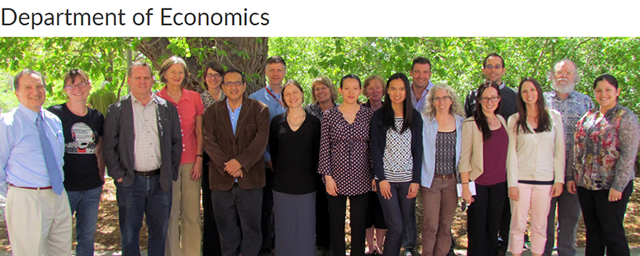
Economics ETDs
Publication Date
Summer 5-31-2017
Abstract
This study investigates some of the predictors of energy poverty, the interrelationships between different expressions of energy poverty, and the human development impacts of energy poverty on primarily rural individuals and households in an underdeveloped country. It uses data from four rounds of Nicaragua's Living Standards Measurement Survey, and examines the effects of energy poverty on income, education, and health.
Chapter 1 provides background information on energy poverty in general, as well as the specific situation that has developed in Nicaragua. It also provides a modeling framework, both conceptual and mathematical, for the ways in which energy poverty impacts human development on an individual and household-level.
Chapter 2 uses a Two-Stage Least Squares model to account for endogeneity between electricity access and income at the household-level. It is found that electricity has a large and significant effect on income. This chapter also estimates the effect of electricity on income levels by income-quantiles. In estimating the effect of electricity on education and health, no endogenous relationship is found. Thus, probit models are used for those specifications. Evidence is found that electricity has a significant impact on primary school completion, but no significant effect on respiratory ailments.
Chapter 3 focuses on the ways in which energy poverty affects the education and health of individuals in a developing country. The manifestations of energy poverty used are whether an individual has access to electricity, and whether or not they rely primarily on firewood for cooking. Data for this chapter comes from the 2014 Living Standards Measurement Survey. The estimations are performed using varying-intercept multilevel logit models. It is found that electricity has a highly significant impact on education, while firewood has a highly significant impact on health.
Chapter 4 employs a difference-in-differences strategy to estimate the relationship between electricity access and off-farm income in Nicaragua, using panel data from 1998 and 2005. Kernel-based propensity score matching is used in both difference-in-differences and quantile difference-in-differences estimation. It is found that electricity access has a large and significant effect on off-farm income, and that this effect increases with income quantiles. Chapter 5 provides concluding remarks.
Degree Name
Economics
Level of Degree
Doctoral
Department Name
Department of Economics
First Committee Member (Chair)
Matías Fontenla
Second Committee Member
Richard Santos
Third Committee Member
Christine Sauer
Fourth Committee Member
Fidel Gonzalez
Fifth Committee Member
Benjamin Waddell
Project Sponsors
Latin American and Iberian Institute at the University of New Mexico
Language
English
Keywords
economics, development, energy, poverty
Document Type
Dissertation
Recommended Citation
Bridge, Brandon. "Individual and household-level effects of energy poverty on human development." (2017). https://digitalrepository.unm.edu/econ_etds/76


